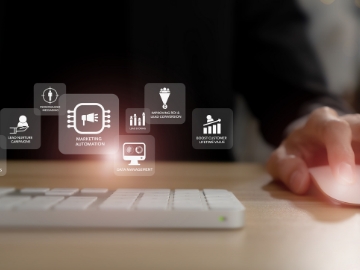Changes in the Workplace: What is the Future of Remote Work?

Remote work had suddenly become the new norm overnight when the pandemic happened. After almost three years of working outside the office, many employers still choose to keep this arrangement. Other businesses, on the other hand, are now starting to ask their workers to come back to the office.
Changes in the workplace have grown to be more dynamic than ever before, but the question remains: what can you still expect from this kind of work setup?
What is Remote Work?
Remote working or working from home is the arrangement most companies implement to comply with government safety protocols. Businesses normalized it so employees could limit contact and lessen the risk of catching COVID-19.
After the height of the pandemic, purely remote work has eventually evolved into a hybrid setup. You can be at the office from Monday to Wednesday but work from home for the rest of the week. Companies gave their workers schedules on when to work onsite or from home.
What Could Work Location Mean?
Work location used to mean having a physical office space to go to. It also meant that if you wanted convenience, you had to live near where you worked. You'd have move closer to your workplace if you live far from the office. Most businesses didn't consider a complete work from home setup before the pandemic hit.
Things have changed now. Along with that shift, businesses have adapted to make the transition to remote work as seamless as possible. After multiple trials, most employees can do what's expected without being physically present. The only exception might be if you're in an industry deemed essential to the economy.
Zoom, Microsoft Teams, and Google Meet are just some of the apps used today to streamline daily operations for most industries. What employees did back then can be easily replicated on any of these apps, from social interactions and presentations to department or company-wide meetings.
Almost instantly, what you knew about work arrangements is now an increasingly rare model than an everyday model. The pandemic has paved the way for a more flexible setup when working, where anywhere can be your work location and not just your business's physical address.
The Future of Working Together
Remote work has produced several benefits that improved how workers manage their work-life balance. However, remote work isn't without its setbacks. The world may still embrace remote setups, but a hybrid structure may be the trend for years to come.
Lack of human connection and collaboration is a flaw in work-from-home arrangements, but fully returning to the office seems to be a growing thing of the past.
Working can have days where you're remotely working at home and days where you're scheduled to report to the office. Combining remote and physical work seems the perfect compromise for future work setups. For one thing, as an employee, you'll be getting the best of both worlds.
When Work and Life Meet Halfway
No one knows what the future of remote work has in store, but it looks very dynamic and full of potential. Through the pandemic, the world began exploring what remote and hybrid work setups offer. While it may just be the recommended setup nowadays, it may change in the future. In many ways, however, they led to positive changes in how we view work.
With more flexibility now available when it comes to working, find your next job opportunity with the help of Career.com!



